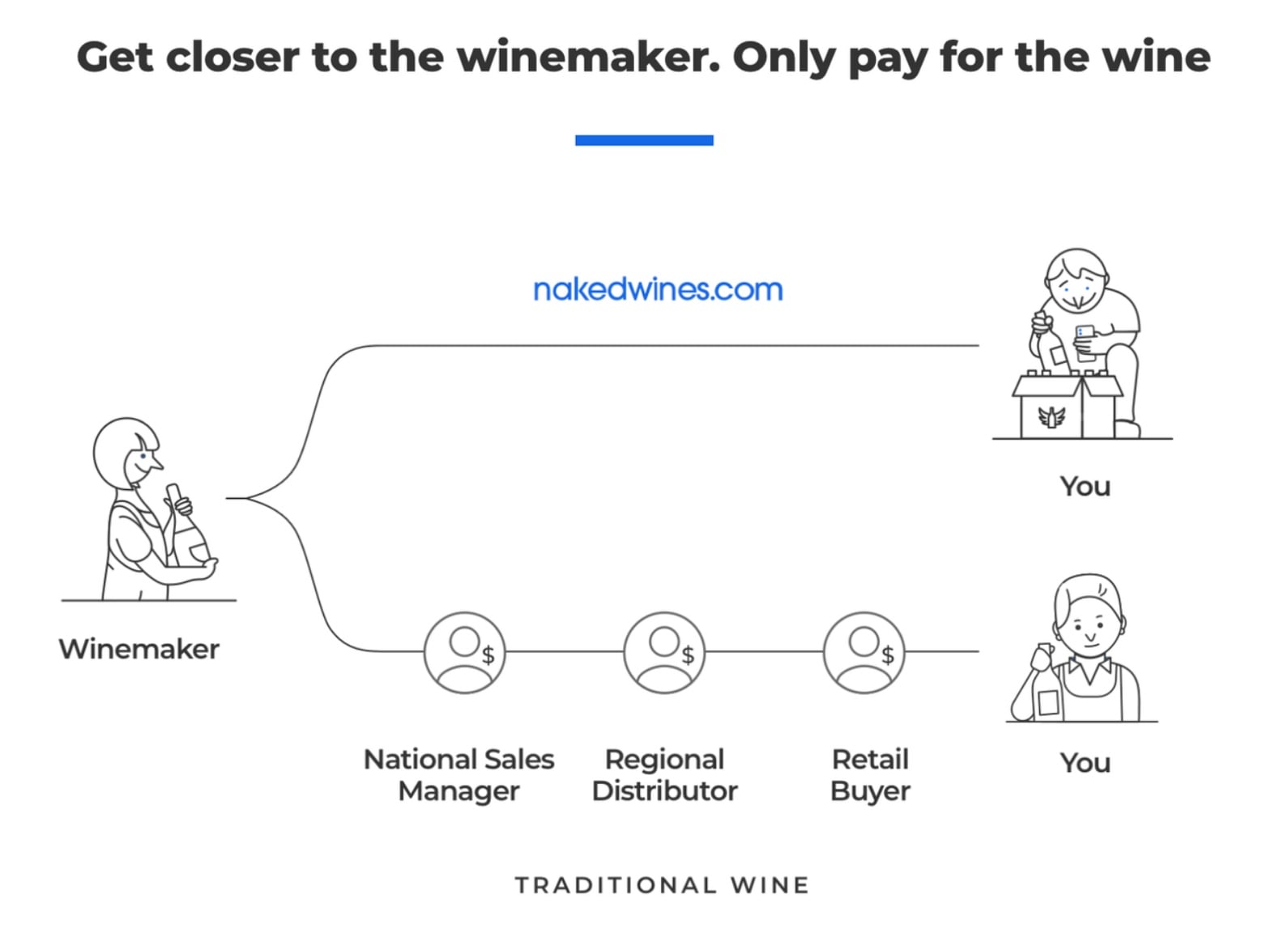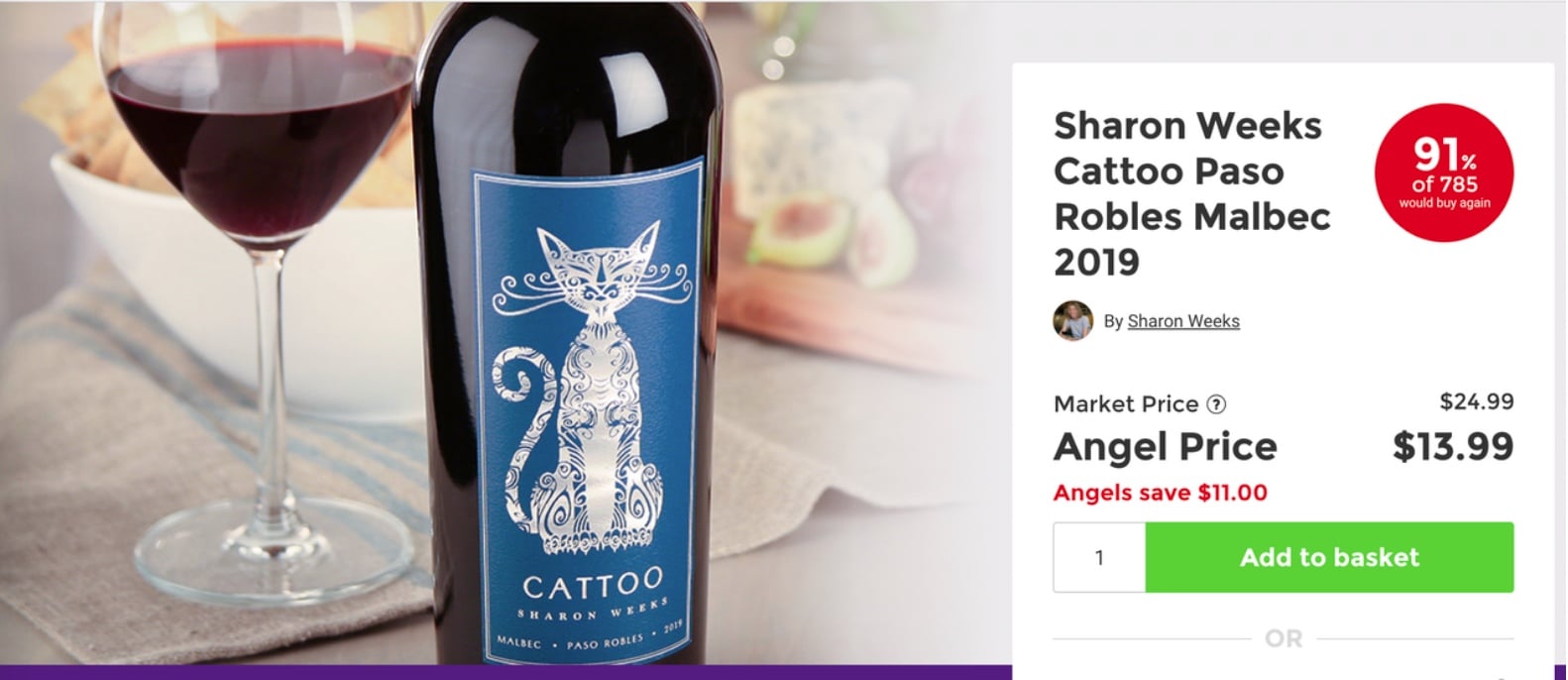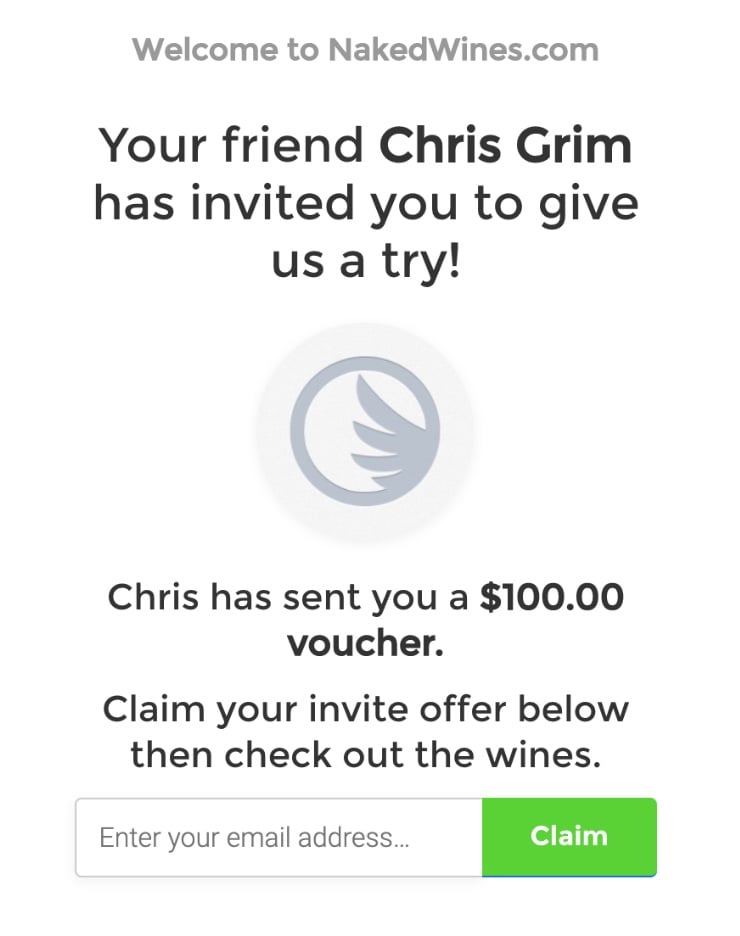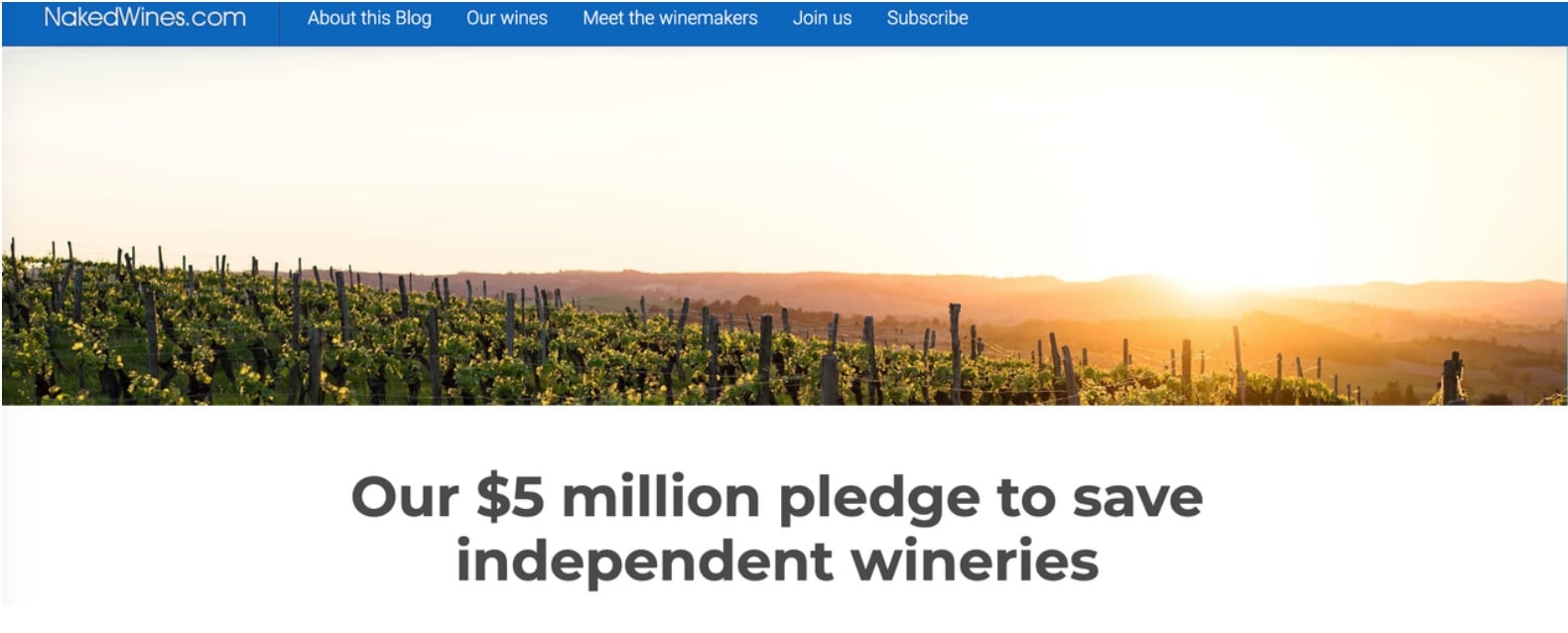2020 was an excellent year for drinking at home. With restaurants and bars shut down, wine direct sales shot up by $222 million last year. One of the companies that benefitted most from this massive shift in consumer habits was Naked Wines.
It wasn’t just the overall increase in direct-to-consumer (DTC) wine sales that propelled Naked Wines to the top of the pile. The unorthodox brand was making waves and building brand recognition long before COVID-19 emerged as a market factor. Its unique approach to the historically conservative wine industry sets it apart from more traditional DTC brands.
So how did Naked Wines become the largest DTC winery globally in little more than a decade? By treating its clients not just as customers but also as investors and brand ambassadors.
Naked Wines Disrupts the Traditional Supply Chain Through Wine Direct Sales
Since its founding, Naked has developed a unique model for buying and selling wine that’s more startup culture than classical wine production. This novel approach has shaped the company’s entire revenue model and sets them apart from other conventional retailers and wine direct sale businesses.
While your local supermarket might seem to offer hundreds of different wine options from wineries worldwide, the truth is, a handful of producers own most of these brands. These legacy portfolios, like Gallo and Treasury, heavily favor reliable flavor profiles and grape varietals; they want to invest in wine they know will appeal to mass-market consumers. It’s a model with a proven track record, but rarely do winemakers have the chance to experiment with new blends or methods.
Rowan Gormley founded Naked Wines in the UK in 2008, with the unorthodox goal of applying crowdfunding principles to the age-old winemaking industry. Naked Wines acts like a venture capitalist firm, vetting pitches from independent winemakers and investing in promising ideas. In TechCrunch, Anne Saunders, president of Naked Wines, called it “a Shark Tank kind of situation, except with wine drinking.”

source: https://us.nakedwines.com/how-it-works
If Naked accepts a pitch, they offer the winemaker funding and access to Naked’s bottling facilities. They also take over distribution via their website. This setup lets Naked cut out several intermediaries: sales managers, distributors, and retail buyers. As a result, they can offer customers lower prices and other perks, such as a direct connection with the winemakers.

Referral Marketing – The Best Practices You Need to Know
Written by veteran referral marketers, this guide will help you optimize your referral marketing program and supercharge growth.
Get the GuideThey Treat Users as Business Partners, Not Customers
Naked Wine inspires loyalty and product evangelism by treating its customers as investors in their brand. Literally.
While customers can simply order wine by the bottle, Naked encourages frequent buyers to become “angel investors” by purchasing a membership. For a $40 a month “buy-in,” investors get to play an active role in Naked’s business. According to Naked’s marketing, angel investors are directly sponsoring indie winemakers. Their investment could literally “change a winemaker’s life.” Naked’s app immerses in the winemaking process. Investors can chat directly with winemakers, ask questions, and give feedback.
Angels get lots of other loyalty perks, like paying wholesale prices and receiving a free bottle of wine each month. They also play a role in the sales process by leaving feedback on the wines for other would-be purchasers. Each wine listing puts customer opinions front and center. Buyers can see what percentage of angels would recommend the wine and can read more detailed reviews further down the page.

source: https://us.nakedwines.com/products/sharon-weeks-cattoo-paso-robles-malbec-2019
Naked also asks its angels to act as ambassadors for the brand by sharing the benefits with their friends and family. Customers can refer friends and family and gift them a very generous $100 credit to spend on wine. This generous gift takes advantage of an economic principle known as social proof. With so many potential wine direct sales options to choose from, it can be difficult for consumers to ascertain the best value. But knowing that a trusted friend uses Naked Wines is often the push potential customers need to trust the brand.

Naked hedges their bets by also sharing the $100-off deal themselves across social media and on their own website. They offer social media influencers the opportunity to become brand ambassadors through a robust affiliate program that offers $25 for each new customer.
During Hard Times, They Put Community First
While many DTC wine companies are seeing a steep uptick in sales during the COVID-19 lockdowns, Naked Wines is in a strong position to retain its customer base long past lockdown. Instead of focusing on growth at all costs, they spent 2020 focused on relationship-building.
Their long-view customer-nurture style is a by-product of their attitude toward customers. While some DTC companies focus on customer acquisition above all else, Naked Wines focuses heavily on natural acquisition and long-term retention. Former CEO Luke Jecks told The Marketing Journal about his philosophy: ” To me, you must have an ‘attract’ model and not a ‘trap’ model. It is a model where the customer plays a vital part in the success. So it is important for us to measure the customer lifetime value – that is how long they stay with us and how much they spend. That is much more important than today’s transaction. We believe that if we can get loyalty, we will get sales.”
Lockdown was a spark that led to an explosion of growth for wine direct sales. Competitors like Wine.com, Winc, and Bota Box all reported sales increases. Naked was no exception; in 2020, US sales grew 20% to deliver a projected revenue of $168 million. Even more telling, the number of angel investors swelled to 500,000 internationally – a 200% year over year growth.
This growth in subscription sales is the key to Naked Wine’s post-COVID-19 survival strategy. Angel investors are loyal customers who will generate recurring revenue each month, making them the holy grail of most DTC companies. Long after the bars open back up for business, angel investors will continue to invest their wine budget in Naked Wines’ programs.
And Naked is committed to keeping those customers through community-building and providing excellent value. Naked set up a COVID-19 relief fund to help their winemakers survive lean times. Although DTC wine sales are up, overall wine sales are down due to restaurant closures, and many wine labels are suffering as a result. The fund gave out over $5 million to 44 winemakers in need.

source: https://news.nakedwines.com/2020/04/24/covid-support-fund/
While this program was indeed altruistic, Naked Wines also heavily promoted it to their existing customer base. Programs like this help build the team mentality that Naked’s angel-investor program relies on and help extend customer lifetime value.
Inspire Loyalty by Putting Your Customers Front and Center
Not every company has an industry-disrupting value proposition, but every company can take a note from Naked Wines’ model. Their novel approach to supply-chain economics is only one part of their success; the other is the ongoing loyalty and team spirit they inspire in their customers.
The easiest way to encourage that loyalty? Through loyalty and referral programs that make your customers feel like they are truly part of your team. Incorporate your clients into your business beyond a simple transactional relationship and you’ll inspire customers to stick around and, even to recruit others.



